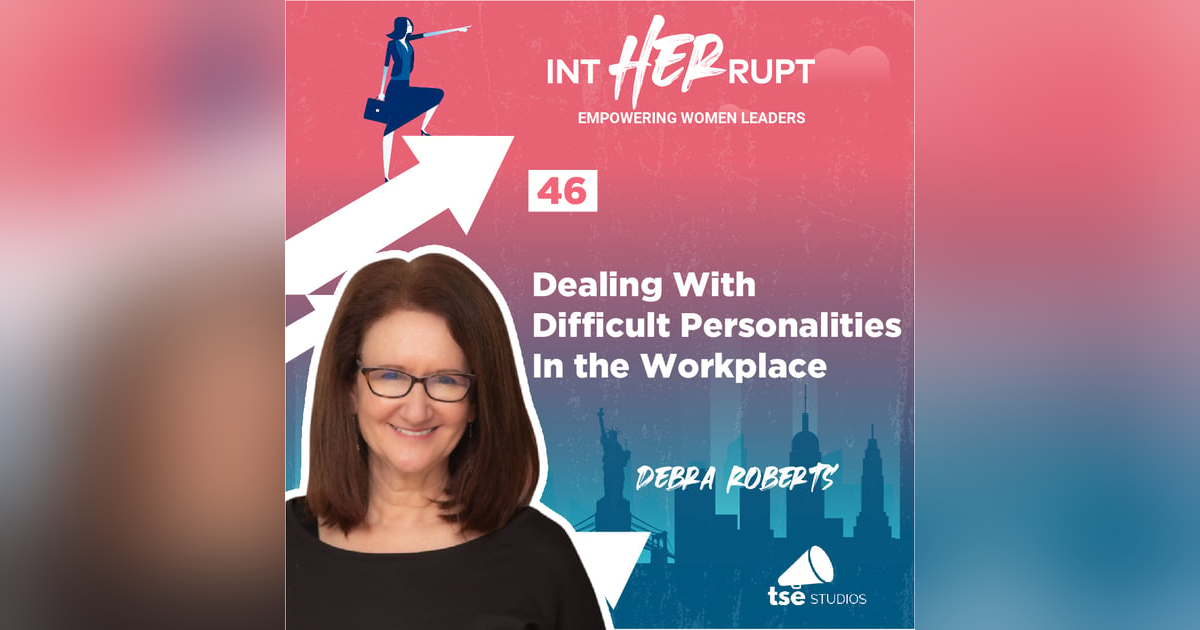INT 046: Dealing with difficult personalities in the workplace


No matter who you are, you’re inevitably going to come across difficult personalities. (And it can be very frustrating.) To learn how to deal with difficult personalities in the workplace, Linda is joined by Debra Roberts, creator of The...
No matter who you are, you’re inevitably going to come across difficult personalities. (And it can be very frustrating.) To learn how to deal with difficult personalities in the workplace, Linda is joined by Debra Roberts, creator of The Relationship Protocol, to address these relationships and learn how to overcome them.
What qualifies as a “difficult personality” is different for each person.
- For example, Debra reacts negatively to passive-aggressive personalities.
- It’s any type you are triggered or challenged by, where you have to think through the proper responses in conversation.
The Relationship Protocol is a communication model that resulted from all her working relationships.
- It provides actionable tools to have a conversation and deal with difficult topics.
- If you want a positive relationship with someone with a difficult personality, ask yourself what you want to say or what you want their takeaways to be after the conversation, and decide your words based on that.
- Don’t target the person, but explain how the actions or choices make you confused.
When something is bothering you, ask them to “help me understand.”
- Sometimes people don’t realize they’re difficult. Debra has encountered many people who don’t even realize their actions are off-putting.
- When you speak to someone respectfully, and you respond negatively, they’re going to assume they’ve done something wrong.
- The takeaway? When in a conversation, never attack the other person when addressing a personality conflict. And remember, your tone is everything.
When talking to someone upset with you, be it a customer or co-worker, you must acknowledge their experience. Validate them.
- Own up to or empathize with them to deescalate a potential conflict.
- Everybody wants to feel heard.
- It’s not about a grand gesture. But it’s about acknowledging other people and being kind.
Debra’s famous interruption story.
- Early in her career, Debra was a department head that recently merged with another company.
- The woman who held a similar position to Debra at the other company was very intimidating, and she terrified Debra.
- She asked Debra a question and then walked out mid-answer. And Debra followed her as she left and called her out on it. And their relationship drastically improved.
To connect with Debra, visit therelationshipprotocol.com or connect with her on LinkedIn. Her website also contains her courses specialized for personal, group, or professional teams to learn how to communicate effectively and have productive relationships. You can also find her book on Amazon.
Do you have stories to tell? Connect with Linda to share them. This podcast is produced by TSE Studios. Check out other podcasts by TSE Studios, including this episode’s sponsor, The Sales Evangelist, helping new and struggling sellers close more deals and achieving their sales goals. Subscribe to the IntHERrupt Podcast so you won’t miss a single show. Find us on Apple Podcast, Google Podcast, Spotify, and Stitcher. Audio created by Ryan Rasmussen Productions.







